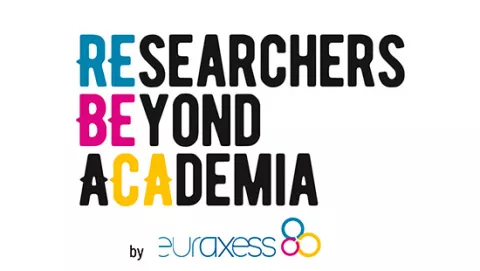Visit our toolkit if you are a:
- Researcher willing to explore careers beyond academia
- Research Performing organization willing to assist researchers in making an informed career change to non-academic careers
- Euraxess members who want to join efforts to promote facilitate researchers' career transition


For Researchers
Visit this section if you are a researcher willing to explore careers beyond academia.

For RPOs and Universities
Visit this section if you are a research performing organization or university willing to assist researchers in making an informed career decision about career change.

For EURAXESS Members
Visit this section if you are a EURAXESS member who want to join efforts to promote career transition of researchers to non-academic careers.

The Spanish Foundation for Science and Technology (FECYT), as coordinator of EURAXESS Spain, has launched the fifth edition of the REBECA (REsearchers BEyond aCAdemia) mentoring programme. REBECA 2026 aims to support early‑career researchers in exploring professional opportunities beyond academic

